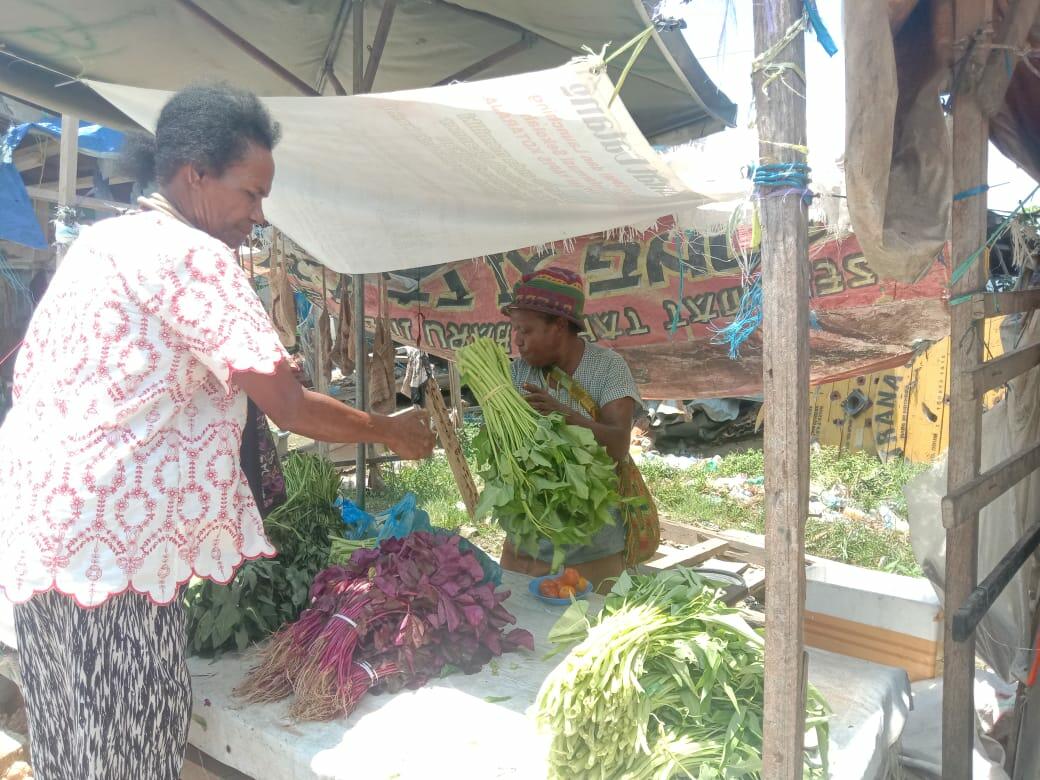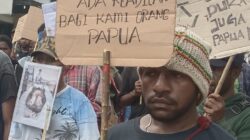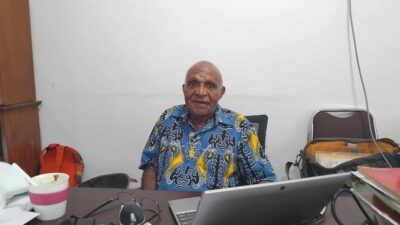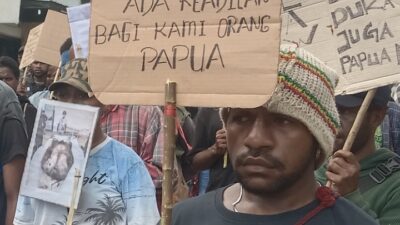Jayapura, Jubi – Local Papuan traders have urged the Jayapura City Administration to supervise and enforce Regional Regulation No. 10/2018, which focuses on safeguarding and empowering local traders, particularly Indigenous Papuans in the market. This request is essential to ensure that local traders can exclusively sell indigenous products like sago, areca nuts, vegetables, petatas (sweet potatoes), and smoked fish, as outlined in the regulation.
Maria Pekey, the coordinator of Indigenous Papuan traders in Abepura, conveyed this message at Youtefa Market, on Tuesday, September 5, 2023. She emphasized the need for Indigenous Papuan traders to manage the sale of products to prevent non-Papuan traders from selling the same items.
The struggle to prevent non-Papuan traders from taking over the market has involved peaceful protests at various government offices, including the Jayapura Mayor’s Office and the Papua Governor’s Office.
Pekey, or Mama Pekey as she is called, a daily vegetable seller at Youtefa Market, shared that her income used to range from Rp1 to 2 million, from a capital of Rp500,000. However, from 2022 to 2023, despite her capital investment increasing to Rp1 or to 2 million, her income decreased. Some traders even stopped selling because of this same reason.
Pekey highlighted the economic vulnerability of Papuan mothers, which has further deteriorated due to the influx of non-Papuan traders into the market.
“Currently, there are about 80 Indigenous Papuan traders in Youtefa Market, selling various products, while there are around 200 non-Papuan traders, offering a wide range of items, from clothing to electronics and food products,” she said.
Nonetheless, Pekey and other Indigenous Papuan traders are hopeful that the government will enforce the regional regulation to protect their interests, especially regarding the sale of indigenous products.
“We believe that market officials should not merely collect daily market fees of Rp 5,000 but should also ensure strict adherence to market regulations,” she added.
Maria Matuan, another Indigenous Papuan trader at Youtefa Market, expressed similar concerns, asserting that locally produced items should be exclusively allocated to Indigenous Papuan traders. She and her fellow traders have repeatedly met with the Mayor of Jayapura City to voice their grievances about non-Papuan traders selling local products in various markets in the city, but their concerns have yet to be addressed.
Matuan, who has been selling areca nuts at Youtefa Market for a decade, lamented the growing presence of non-Papuan traders in the largest regional market in Jayapura City, outnumbering native Papuan traders significantly.
“If a non-Papuan trader goes back to their hometown, when they return to Papua, they often bring along 10 to 20 new traders,” she said.














